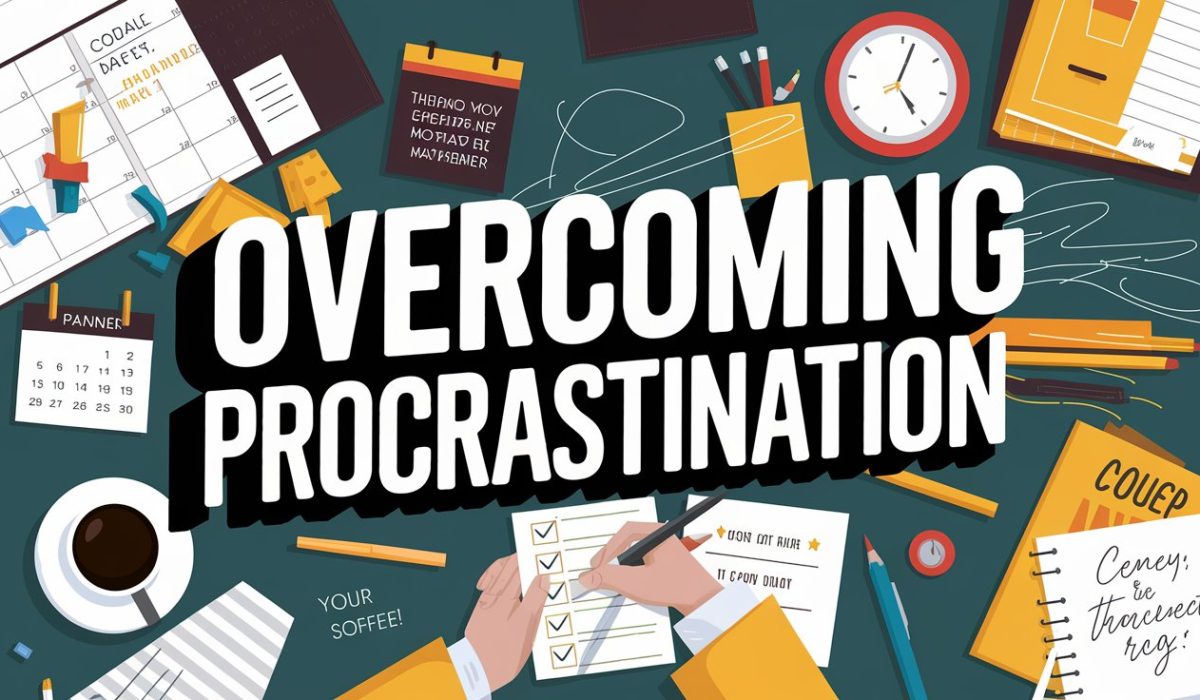Overcoming Procrastination: Strategies for Success
Procrastination can be a significant barrier to achieving your goals and fulfilling your potential. It often leads to stress, anxiety, and a sense of unfulfillment. However, with the right strategies, you can overcome procrastination and boost your productivity. In this post, we will explore practical techniques to help you take action and stay focused.
1. Understanding Procrastination
Before addressing procrastination, it’s essential to understand why it occurs. Often, procrastination stems from fear of failure, perfectionism, or feeling overwhelmed by the tasks at hand. By identifying the root causes of your procrastination, you can develop a targeted approach to combat it.
2. Set Clear Goals
Setting clear, achievable goals is crucial for overcoming procrastination. Break larger tasks into smaller, manageable steps, and create a timeline for completing each one. This approach helps reduce feelings of overwhelm and makes it easier to take action. Use the SMART criteria—Specific, Measurable, Achievable, Relevant, Time-bound—to define your goals effectively.
3. Create a Productive Environment
Your environment plays a significant role in your ability to focus. Identify and eliminate distractions that may hinder your productivity, such as noise, clutter, or digital interruptions. Consider setting up a designated workspace that promotes concentration and motivation. A clean, organized space can enhance your focus and encourage you to tackle tasks promptly.
4. Prioritize Tasks
Prioritizing your tasks can help you focus on what matters most. Use techniques like the Eisenhower Matrix to categorize tasks based on urgency and importance. By identifying high-priority tasks, you can allocate your time and energy effectively, ensuring that you complete the most critical items first.
5. Establish a Routine
Creating a daily routine can provide structure and help you build productive habits. Designate specific times for work, breaks, and leisure activities. Consistency is key; by sticking to a routine, you can train your mind to recognize when it’s time to focus and when it’s time to relax. Routines can significantly reduce procrastination by making tasks feel more automatic.
6. Use Time Management Techniques
Implementing time management techniques can help you stay on track and minimize procrastination. The Pomodoro Technique, for example, involves working for 25 minutes and then taking a 5-minute break. This method can enhance focus and productivity while reducing burnout. Experiment with different techniques to find what works best for you.
7. Practice Self-Compassion
Procrastination often comes with feelings of guilt and shame, which can lead to a vicious cycle of avoidance. Practice self-compassion by acknowledging that everyone struggles with procrastination at times. Instead of being overly critical of yourself, focus on learning from your experiences and moving forward.
8. Stay Accountable
Accountability can be a powerful motivator in overcoming procrastination. Share your goals with a friend, colleague, or mentor who can provide support and encouragement. Consider joining a study group or a productivity club where members hold each other accountable for their progress. Knowing that someone else is aware of your goals can inspire you to take action.
Conclusion
Overcoming procrastination is a journey that requires self-awareness, commitment, and effective strategies. By understanding the causes of your procrastination, setting clear goals, and creating a productive environment, you can break free from the cycle of avoidance. Remember that progress takes time, and it’s essential to be patient with yourself. Implement these techniques to enhance your productivity and achieve your goals. Start today, and take the first step toward a more focused and fulfilling life.
